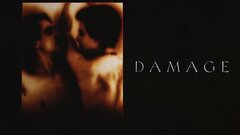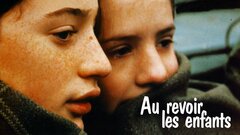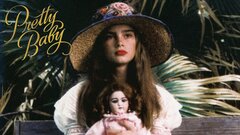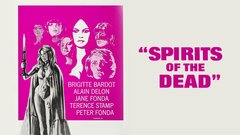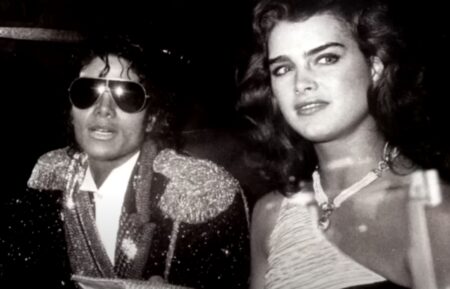One of the most consistently innovative and risk-taking filmmakers of his generation, Louis Malle directed a number of critically acclaimed films both in his native France and the United States. Malle first made a splash for his award-winning documentary with Jacques Cousteau, "Le Monde du silence" (1955), and made an effective transition to narrative filmmaking with "Elevator to the Gallows" (1957) and the controversial drama "The Lovers" (1958).
He went on to helm the masterful character drama "The Fire Within" (1963) and had a major international success with the one-of-a-kind documentary series "Phantom India" (1969). After oscillating between French-made documentaries and features throughout the 1970s, Malle made his American debut with the highly charged "Pretty Baby" (1978), followed by the atmospheric crime drama "Atlantic City" (1980), which earned him his only Best Director nomination at the Academy Awards.
From there, he directed his most creatively daring film, "My Dinner with Andre" (1984), returned to France for the explicitly autobiographical "Au Revoir les enfants" (1987), and ended his career - which was cut short by cancer - with the clever "Vanya on 42nd Street" (1994). From undersea documentaries to romantic thrillers; from exposés on poverty to extended dinner conversations, Malle's work could hardly have been more diverse, challenging and worthy of the highest praise.
Born on Oct. 30, 1932 in Thumeries, Nord, France, Malle was raised in a wealthy family by his father, Pierre, a former naval officer who became the director of a sugar refinery, and his mother, Francoise, the heiress to a sugar fortune. He initially studied political science at the Institut d'etudes politiques, Sorbonne, University of Paris, but became interested in film and transferred his studies to the Institut des hautes etudes cinématographiques (IDHEC).
Malle began his career working with famed ocean explorer Jacques Cousteau on "Le Monde du silence" (1955), which won the Palme d'Or at the Cannes Film Festival and the Oscar for Best Documentary Feature. He also assisted Robert Bresson on "A Condemned Man Escapes" (1956). His first feature was a stylish commercial thriller, "Elevator to the Gallows" (1957), and he gained international recognition the next year with "The Lovers" (1958), a study of upper-class ennui which featured a dazzling performance by Jeanne Moreau - with whom he was romantically involved at the time - and a degree of sexual frankness that sparked years of outrage.
He went on to direct "Zazie dans le metro" (1960), a comedy about a foul-mouthed preteen, before returning to documentary filmmaking with "Vive le Tour" (1962), an examination of that year's Tour de France.
Returning to narrative films, Malle directed a young Brigitte Bardot in the May-December romantic drama "A Very Private Affair" (1962), also starring Marcello Mastroianni, and had another early triumph with "The Fire Within" (1963), a masterful study of the mental disintegration of a recovering alcoholic (Maurice Ronet) searching for a reason to continue living. After directing Bardot and Moreau in the engaging adventure comedy "Viva Maria!" (1965), Malle stumbled with the predictable crime comedy "Le Voleur" (1967) and the costume horror drama "Spirits of the Dead" (1968), an anthology film of Edgar Allen Poe adaptations co-directed by Roger Vadim and Federico Fellini.
Malle went back to documentaries and directed his crowning achievement in the form with "Phantom India" (1969), a massive six-plus hour series exploring in epic detail life in India circa 1968. Originally shown on French television, the documentary series covered a wide range of topics - from Bombay to the caste system - and spawned an off-shoot documentary, "Calcutta" (1969), that was shown at the Cannes Film Festival.
Malle followed up his non-fiction triumph with the accomplished sex farce "A Very Curious Girl" (1969) and managed to stir more controversy with "Murmur of the Heart" (1971), a light coming-of-age sex comedy that delved a bit into incest. After the rather minor man-on-the-street documentary "Place de la Republique" (1974), he once again courted controversy - this time of a political nature - with "Lacombe Lucien" (1974), a stark drama about the German occupation of France during World War II that was one of the first films to suggest that not all Frenchmen were in league with the resistance.
The film was nominated for Best Foreign Language Film at the Academy Awards. After decades of making films in France, Malle made his American debut with "Pretty Baby" (1978), which starred Brooke Shields as the product of a prostitute mother (Susan Sarandon) who is raised in a turn of the century New Orleans brothel and decides to adopt her mother's profession. Despite the charged subject matter and the controversy of an actual underage actress playing a lust object, Malle's rather mundane approach made critics and audiences shrug.
On a personal note, the director began a romantic entanglement with Sarandon, which would last only two years.
Though he had an inauspicious U.S. debut, Malle followed with an outstanding second American film, "Atlantic City" (1980), an atmospheric crime drama about an aging has-been gangster (Burt Lancaster), who falls for a casino croupier (Sarandon) after her husband steal drugs from the mob and is killed. The film was highly praised by critics and earned Malle his only Academy Award nomination for Best Director.
Malle followed up with "My Dinner with Andre" (1981), a lengthy conversation between playwright Wallace Shawn and director Andre Gregory that turns into an unexpectedly engaging treatise on politics and society. By this point, Malle had married second wife, actress Candice Bergen, in 1980. The couple would remain together until his death. Meanwhile, he directed Donald Sutherland and Sean Penn in the easily dismissed caper comedy "Crackers" (1984) before turning back to documentaries with the heartwarming "God's Country" (PBS, 1986).
After a decade-long absence, he returned to France to direct "Au Revoir les enfants" (1987), an explicitly autobiographical work about boyhood friendships and betrayal during the German Occupation, arguably his most successful film in terms of public and critical response. The film won a number of prominent festival awards and received an Academy Award nomination for Best Foreign Language Film.
Malle went on to helm the slight, but diverting comedy "May Fools" (1990), which was set in the French countryside during the 1968 student riots in Paris. From there, he directed Miranda Richardson and Jeremy Irons in the British production "Damage" (1992), an erotic thriller about deceit and sexual obsession.
Malle again collaborated with actor Wallace Shawn and director Andre Gregory on what was to be his last film, "Vanya on 42nd Street" (1994), an interpretation of Anton Chekhov's "Uncle Vanya" about a troupe of actors rehearsing the play in the dilapidated New Amsterdam Theater in New York City. Scripted by David Mamet, the film was a clever take on Chekhov's play and proved to be the director's swan song.
Malle had been quietly battling lymphoma and succumbed to the cancer in his Beverly Hills home, surrounded by his wife and family, on Nov. 23, 1995, which happened to be Thanksgiving Day. He was 63 years old.
By Shawn Dwyer






